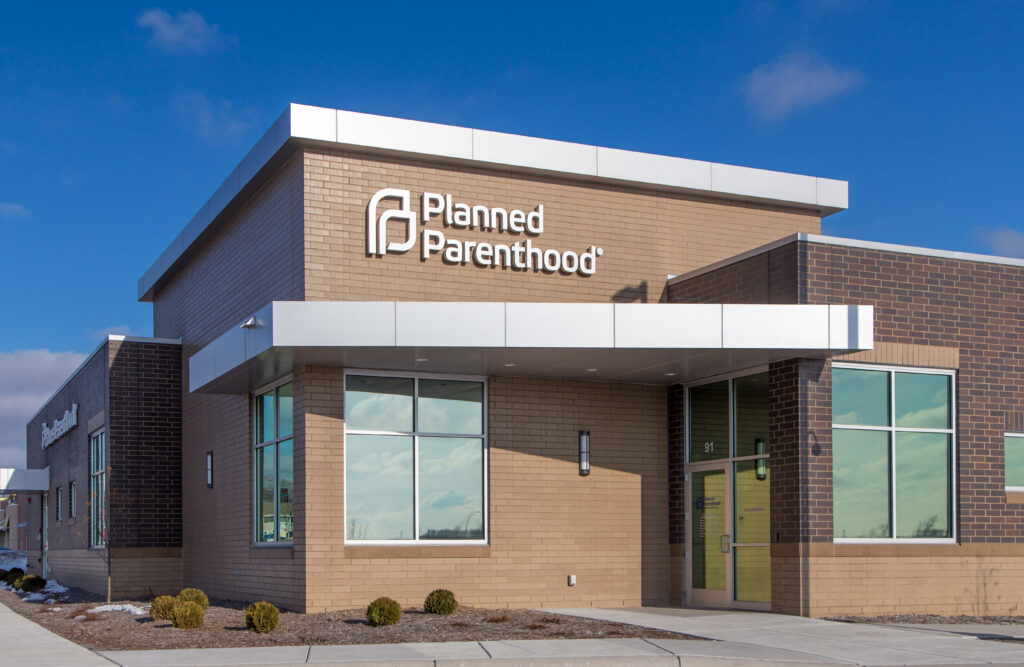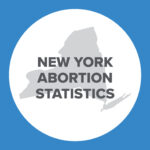Abortion Reporting: North Carolina (2022)
North Carolina’s 2022 abortion statistics were published online by the North Carolina Department of Health and Human Services in February 2024.
Statistics and Changes in North Carolina Abortions, 2021-2022

The change in total abortions and drug-induced abortions reflects abortions performed on North Carolina residents. The change in the abortion rate reflects all abortions reported in North Carolina, including nonresidents. The report does not include information on Planned Parenthood’s North Carolina abortion market share.
Abortion Totals and Trends
In 2022, there were 40,037 abortions reported in North Carolina, an increase of 23% from 2021. There were 28,855 abortions among North Carolina residents, up 6% from the previous year (Fig. 1). The large increase in abortions occurring in North Carolina was due to the more than doubling of nonresidents who obtained abortions in North Carolina in 2022 (a 228% increase). Abortions on resident women composed 72%, as opposed to 84% in 2021, of all abortions reported in the state in 2022. Drug-induced abortions performed on state residents increased by 11% from 2021 and represented 69% of resident abortions (Fig 1.). The Charlotte Lozier Institute (CLI) estimates that North Carolina’s abortion rate increased by 22% to 19 abortions per 1,000 women of childbearing age (Fig. 2).1 As of March 2024, 34 states have released 2022 abortion statistics, with 21 reporting that abortions increased from 2021.
State Report Summary
The North Carolina report includes information on abortions performed on state residents both in North Carolina and in other states; most of the information in the report does not include abortions performed on nonresident women. In 2022, 1.9% of the resident abortions reported to the North Carolina Department of Health and Human Services were performed out-of-state, and 98.1% were performed in North Carolina.
Eight percent of North Carolina resident abortions were obtained by girls under the age of 20. Twenty-nine percent were on women in their early twenties, and another 29% were on women in their later twenties. A fifth were on women ages 30 to 34, and 13% were performed on women ages 35 and older. Age was not reported for 2% of the abortions.
Non-Hispanic black women composed the largest group of North Carolina residents undergoing abortions, making up 47% of the total even though non-Hispanic black women make up only 23% of North Carolina’s overall population of women of childbearing age. Twenty-six percent of the abortions were on non-Hispanic white women. There is a large difference between the abortion rates of non-Hispanic black and white women of childbearing age in North Carolina. The 2022 black abortion rate in North Carolina was 27.5, four times higher than the white abortion rate of 6.4. One percent of the abortions were on American Indian women. Three percent of North Carolina resident abortions were obtained by women of other non-Hispanic races, and 5% by women of multiple non-Hispanic races. Fifteen percent of the abortions were performed on Hispanic women. Race was not reported for 2% of the abortions.
Well over half the abortions (58%) were obtained by women with 13 years of education or more. Thirty-one percent of the abortions were performed on women with only 12 years of education, and 7%on women with fewer than 12 years of education. Seventy-nine percent of the abortions were on unmarried women, while 13% were on married women and 7% on women of unknown marital status.
Thirty-seven percent of abortions performed on North Carolina residents were on women with no living children. Twenty-six percent were on women with one child, and 36% were obtained by women with two or more children. Over half (57%) of the abortions were on women with no previous abortions, compared to 19% with one prior abortion and 14% on women with two or more prior abortions. The number of living children was not reported for 1% of the women getting abortions, and the number of previous abortions was not reported for 10%.
The majority of North Carolina resident abortions (71%) occurred at eight weeks of gestation or earlier. Twenty-one percent were performed between nine and 12 weeks of gestation, while 4% were reported between 13 and 15 weeks. Three percent of the abortions occurred between 16 and 20 weeks, with 833 performed in North Carolina and 26 abortions performed in other states. There were 39 abortions at 21 weeks of gestation or later, with all 39 being performed on North Carolina women in other states. Gestational age was not reported for 0.7%.
Legislative Changes
As CLI previously summarized, in 2023, North Carolina passed SB20 into law, and despite a veto by Governor Cooper, the bill became law and took effect in July 2023. A report released by the Guttmacher Institute, titled the “Monthly Abortion Provision Study,” showed that during the month of July (2023) when North Carolina’s law went into effect, abortions in the state dropped 31% from June 2023. As noted in the “Abortion Totals and Trends” section of this report, North Carolina was a hotspot for interstate abortion commerce in 2022, as evidenced by the dramatic increase of out-of-state women who obtained abortions in North Carolina. This is likely to change when the state’s 2023 data are released given the 12-week law (SB20) that went into effect in July 2023.
State Ranking
In a CLI study ranking abortion reporting across the country, North Carolina was ranked 29th best. Since then, North Carolina has improved its reporting, most recently in SB20 by requiring healthcare providers to report abortion complications they treat. North Carolina could continue to improve its reporting by including information for all abortions occurring in the state, not just those performed on state residents. North Carolina could also identify the states that do or do not share data on North Carolina residents who travel out of state for abortions.


- National rates were calculated using Guttmacher Institute. North Carolina rates were calculated by CLI using the following formula: (total number of abortions performed in North Carolina ÷ number of resident women ages 15-44 [based on most recent population estimates]) x 1,000. Rates may differ slightly from previous CLI articles due to revised population estimates. Population estimates were obtained from CDC WONDER. Estimates for 2005-2009 are intercensal estimates of the July 1 resident population. Estimates for 2010-2019 are Vintage 2020 postcensal estimates of the July 1 resident population. Estimates for 2020-2022 are Vintage 2022 postcensal estimates of the July 1 resident population. Estimates were produced by the U.S. Census Bureau and the National Center for Health Statistics.
- The abortion reports caution that abortions were underreported in 2011-2014.
























